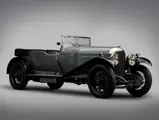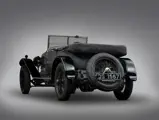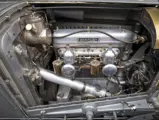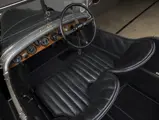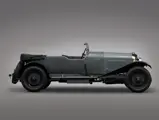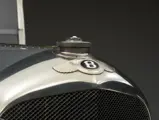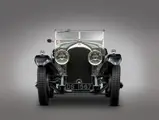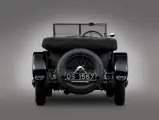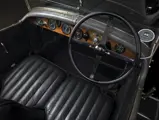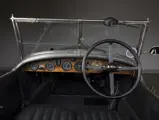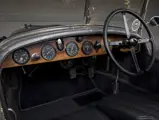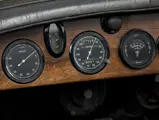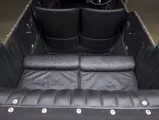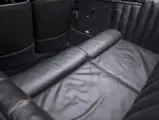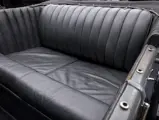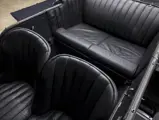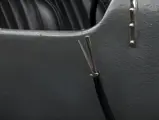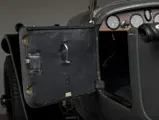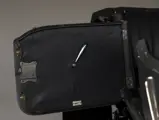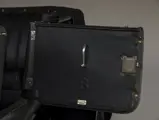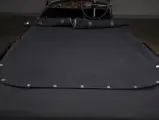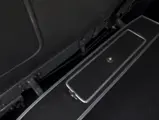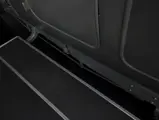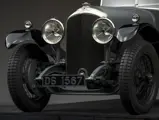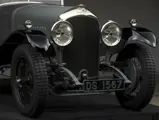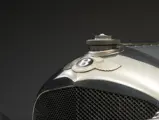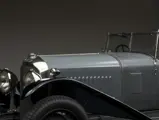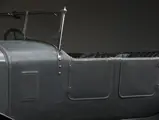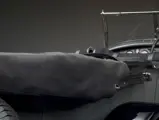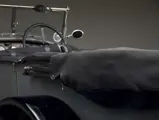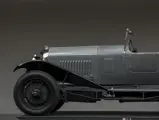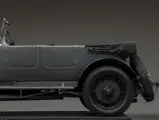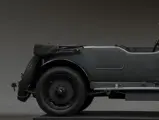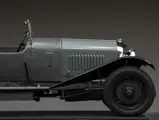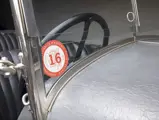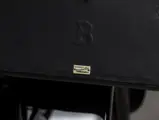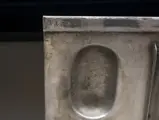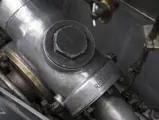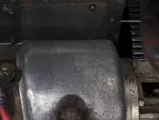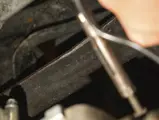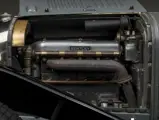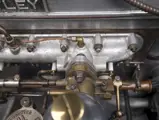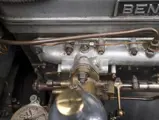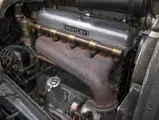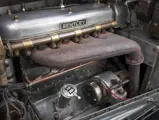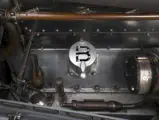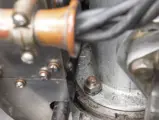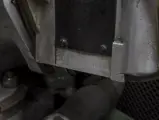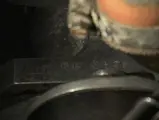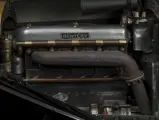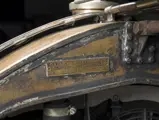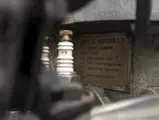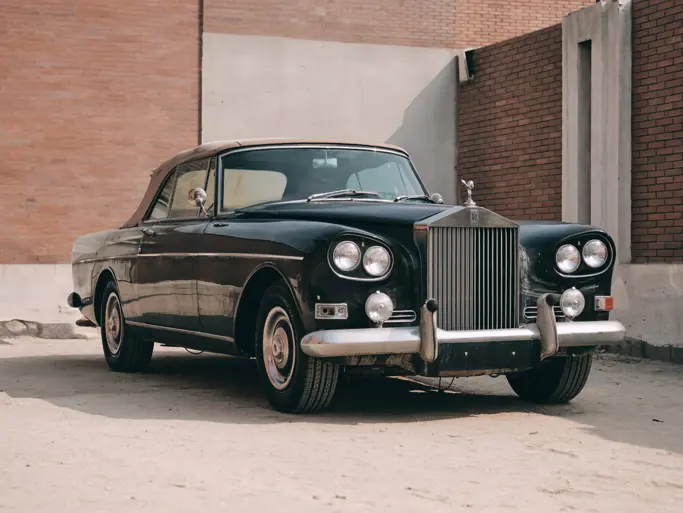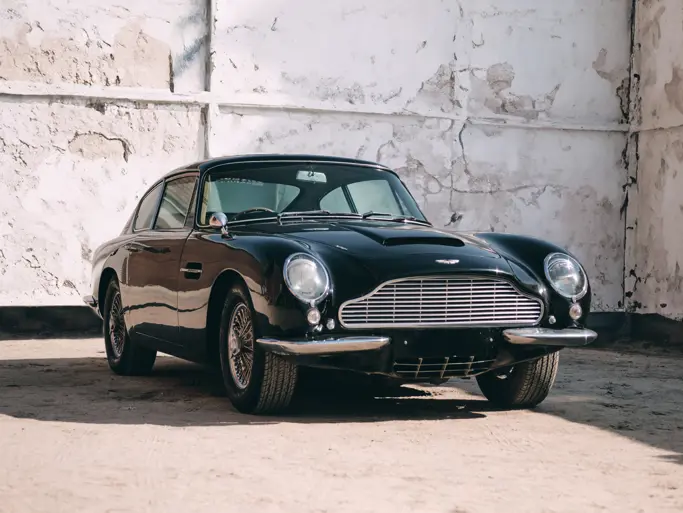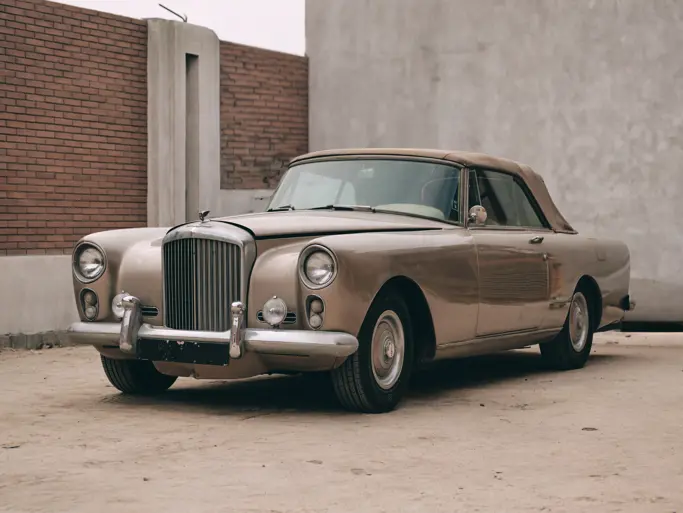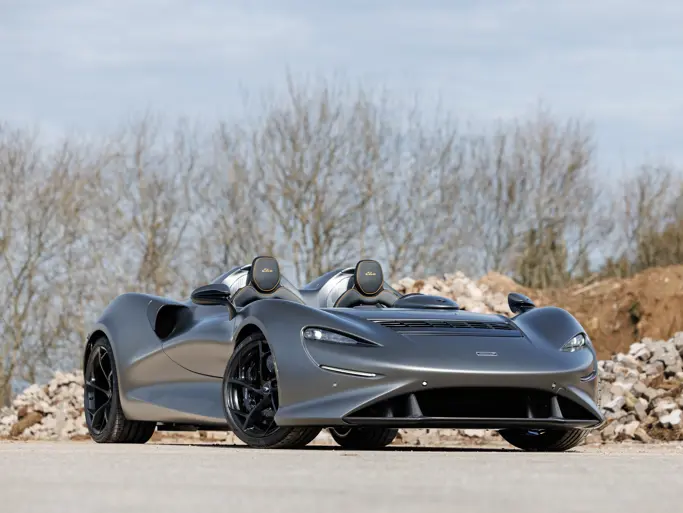Monterey 2021
1929 Bentley 4½-Litre Open Four-Seater Sports by Vanden Plas
The Paul Andrews Estate Collection
{{lr.item.text}}
$1,105,000 USD | Sold
 | Monterey, California
| Monterey, California
{{internetCurrentBid}}
{{internetTimeLeft}}

- A genuine, intact, unmodified “W.O.” Bentley—thoroughly maintained, never restored
- Formerly owned by renowned enthusiasts John Cuthill Sword and the Rt. Hon. Alan Clark
- Retains original chassis, engine, gearbox, and most desirable Vanden Plas fabric coachwork
- Accompanied by a detailed history report from Bentley authority Dr. Clare Hay
- A “W.O.” that satisfies every criteria for greatness: originality, provenance, and proper sorting
THE USE AND ENJOYMENT OF A “GREAT CAR”
As a man who loved the great performance automobiles, it was natural that Paul Andrews would gravitate to a vintage “W.O,” Bentley—and not only that, to one of the finest survivors of its type. That was an outstanding characteristic of Mr. Andrews’ collecting: there was no separation between a “Great Car,” the term often used for the best examples of the most sought-after marques, and a “driver;” they were one and the same. In all of his acquisitions, be they Chevrolet or Duesenberg or Cadillac or Bentley, he conscientiously sought out the specimen with the best provenance and the most respected history, performed proper sorting after making an acquisition, and drove, with great satisfaction, at the speeds which the factory had intended.
Fewer cars are a better example of the Andrews ethos than Bentley 4½-Litre chassis number RL3427. Not a modern replica of a Vanden Plas Open Four-Seater Sports, it is the genuine article, still mated to the chassis and drivetrain with which it was united at its birth, all as lovingly spelled out in two accompanying reports from the noted vintage Bentley authority, Dr. Clare Hay.
Dr. Hay recounts carefully the 10-foot, 10½-inch chassis having been built to the latest standard specification for early 1929, and that it today retains its correct numbering to the front cross-member and the nearside front dumbiron knuckle; the front axle is also matching, numbered RL3427, as is the steering box. The original engine, number RL3429, remains in place, bearing the proper numbers on the crankcase and magneto turret and sequence number 368 on the sump; “this will be,” Dr. Hay notes, “the original.” (Earlier additions of Dr. Hay’s Bentley: The Vintage Years place this engine in another chassis, an error corrected in later editions as well as within her own report.) It is fully, properly set up to the correct original 1929 specification, with a Smiths starter motor, twin SU HVG5 carburetors, and twin ML ER4 magnetos, as well as the proper six-way Bosch fuse box. Dr. Hay further believes that the car likely retains its original “C” type gearbox, number 6458, and the correct Elektron firewall is present.
The side lights are correct Smiths units, while at some point Lucas P100 headlights were fitted, a forgivable and minor alteration. The instrument panel is, Dr. Hay continues, “I think, the original, albeit refinished,” with correct instruments save a later Smiths clock; a tachometer, fitted when new, which remains present today, as does the proper Bluemel steering wheel.
The original Vanden Plas body order indicates the car was mounted with body number 1553, one of 160 to the standard Open Four-Seater Sports design, as ordered by Bentley Motors itself on behalf of their main Scottish agents Rossleigh Ltd. Several improvements were made over earlier versions of the design, including a slight extension behind the rear seat to store side curtains, a lightly raked windshield, and new designs for the top mechanism and toolbox. The body was specified in all-over grey, including its fabric paneling, Connolly leather interior, with the hood, fenders, and chassis all finished to match, and the wheels in black. Today the coachwork still retains its coachbuilder’s number stamped into the body, floorboards, and spare tire mount. The body has been refinished, with new upholstery and padding to the front seats and carpets, and more recent paint, but underneath the newer finish is the coachwork’s original fabric, itself utterly remarkable after nine decades. The original chassis number is still stamped in the edges of the hood sides. Further, the original linoleum flooring is present, and the top frame is believed to be the original, although the side screens are absent.
According to Dr. Hay, the first owner recorded was Major E.G. Thomson of Edinburgh and Peeblesshire, for whom the car was registered—as today—DS1567 on 1 April 1929. The second of four “W.O.” Bentleys that Major Thomson would enjoy over the years, it enjoyed occasional service and repair work, including after what must have been an exceedingly minor accident requiring straightening of some steering components. This was performed by Bentley mechanics through November 1930, including after acquisition that August by A.J.H. Mowbray of Easter Livilands, Stirling; it may have been shortly transferred to another member of his family.
In 1951 the car was reported as in the ownership of John Cuthill Sword. Mr. Sword’s name is held in Scotland in the same reverence as Bill Harrah and J.B. Nethercutt are in the United States. His country’s most enthusiastic and prolific early collector, he amassed an impressive stable of early automobiles beginning from the era when they were virtually new. Indeed, the car may have remained with his family for over 60 years. While the majority of the Sword collection was sold at a pair of now-legendary auctions in the early 1960s, chassis RL3427 was retained by the Swords and exhibited at the Glasgow Transport Museum until 1992, when it was sold by Sotheby’s...with a note indicating that it had been in the family’s hands since 1931!
The successful buyer of the car at the 1992 sale was the Rt. Hon. Alan Clark, the recently retired Conservative Member of Parliament, military historian, and diarist, known for his colorful, outspoken ways and flamboyant lifestyle. Outside the House of Commons, Clark was a passionate automobile enthusiast who enjoyed many great cars over the years; he was an early contributor to Octane magazine and wrote a memorable autobiography of his life with automobiles, Back Fire. In 1997, still in Clark’s hands, chassis RL3427 was described by Bentley specialist Tim Houlding as “staggeringly original.”
Subsequent to Clark, the car was acquired by another prominent European collector, in 2003 by Peter Reeve, then in 2005 by Martin Chisholm, after which it passed to collector Shane Houlihan. In Mr. Houlihan’s ownership the car underwent some gentle cosmetic work, including a refinish in grey and a partial retrim of the interior in black leather, and was shown at the Concourse of Elegance at Hampton Court in 2014. In 2016 it left the United Kingdom for the first time to join a prominent collection of performance cars of the highest pedigree in the Southern U.S.
Finally, in 2018, it was acquired for Paul Andrews’ collection with plans for many further years of enthusiastic motoring in his hands. Accordingly, the 21,526-mile car has continued to enjoy the collection’s typical level of superb care, maintained in ready-to-run condition with the carburetor and brakes rebuilt, and prepared to enjoy on modern roads.
What Paul Andrews recognized, just as Alan Clark did before him, is that chassis RL3427 is indeed wonderfully, superbly original, but for it to remain hermetically sealed as a museum piece would be contrary to the entire spirit of the car. It should be carefully maintained and joyfully driven, its pilot soaking up the experience of being at the controls of a “W.O.” that remains, in most every significant sense, exactly as it was in 1929. It is only in that sensory-rattling, overwhelming moment that one comes to truly understand just why this is a “Great Car”—genuinely worthy of every imaginable superlative.

